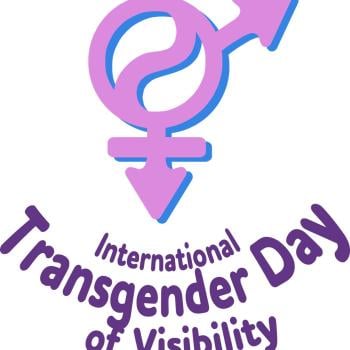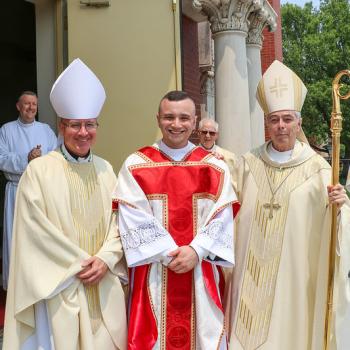Editors' Note: This article is part of the Patheos Public Square on Engaging the New Year. Read other perspectives here.
As I look out of my office window to the wide open horizon of a brand new year, I am sitting at a desk covered in paperwork and projects I didn't quite get to in 2015. It would be easy to focus on all the work that remains to be done, for there is always more work to be done, and forget all of the progress that has brought me to this point.
There is a similar temptation, when taking a broader view of the world, to focus on problems and overlook progress. Working in global health, it is necessary to focus on needs and draw attention to gaps, but it is equally important to celebrate successes. When I look back on 2015, I grieve that less than half of those in need of inexpensive, effective medicine to treat and prevent neglected tropical diseases (such as hookworm and elephantiasis) received it. And at the same time, I rejoice that Mexico became the third country to eliminate river blindness, and that the Nobel Prize was awarded to two scientists who discovered the drug that made it possible. Holding in my hands both successes and failures, clearly seeing the work that remains and appreciating the progress made thus far — this is the spirit of clear-eyed optimism I hope to live in 2016.
A large reason for it is my Catholic faith. In college, I was introduced to the rich Catholic social tradition that brings ancient wisdom to modern social problems. My classes taught me about our Church's view on war and peace, wealth and poverty, and I learned that as a Catholic I am expected to be an active participant in the building of the Kingdom of God in the here and now. I also learned that even as we are called to be ever-vigilant to suffering, we must look at the problems of this world in a spirit of faith, hope, and love, confident that those who hunger and thirst for righteousness will be satisfied in the fulfillment of the Kingdom.
In his visit to the United States this past September, Pope Francis imbued his historic speech to a joint session of Congress with the clear-eyed optimism I hope to emulate. Instead of lecturing these powerful men and women for their shortcomings, he encouraged them with a reminder of all of the progress we have made as a nation and as a world: "How much has been done in these first years of the third millennium to raise people out of extreme poverty!" he exclaimed, continuing, "I know that you share my conviction that much more still needs to be done, and that in times of crisis and economic hardship a spirit of global solidarity must not be lost." With these words, Francis celebrated the success of our nation's efforts to fight poverty and sent forth its leaders to continue the work.
I was once told that the point and purpose of the Catholic Mass is that we are sent forth from it. When the priest says the final blessing, "Go in peace to love and to serve the Lord," we are not simply dismissed, we are sent forth from the celebration of the Eucharist, charged with loving and serving God and neighbor.
And if we wonder where we are being sent, Pope Francis made it clear in Evangelii Gaudium: the Church must "go forth to everyone without exception. But to whom should she go first? When we read the Gospel we find a clear indication: not so much our friends and neighbors, but above all the poor and sick, those who are usually despised and overlooked, 'those who cannot repay you'" (Luke 14:14).
The needs of "those who cannot repay you" can sometimes feel overwhelming, and the timeline to fulfilling them all can stretch on dispiritingly. In the work I do to serve the poor and sick affected by neglected tropical diseases, I am often comforted by the words of the Romero prayer: "It helps, now and then, to step back and take a long view… We accomplish in our lifetime only a tiny fraction of the magnificent enterprise that is God's work. Nothing we do is complete, which is a way of saying that the Kingdom always lies beyond us."
The Kingdom always lies beyond us, yes, but each action for justice is "a beginning, a step along the way," as the prayer continues. As we begin the new year, I am fully aware of the length of the road toward the eventual control and elimination of neglected tropical diseases, which to this day affect one and a half billion of the world's poorest people, and the scope of the larger effort to end poverty and promote justice. But, buoyed by the successes the global community has already achieved, and by my faith's call to hope that demands action, I am entering 2016 more optimistic than ever.
1/13/2016 5:00:00 AM




